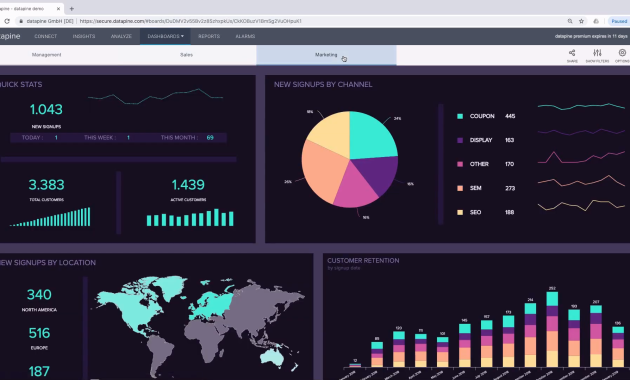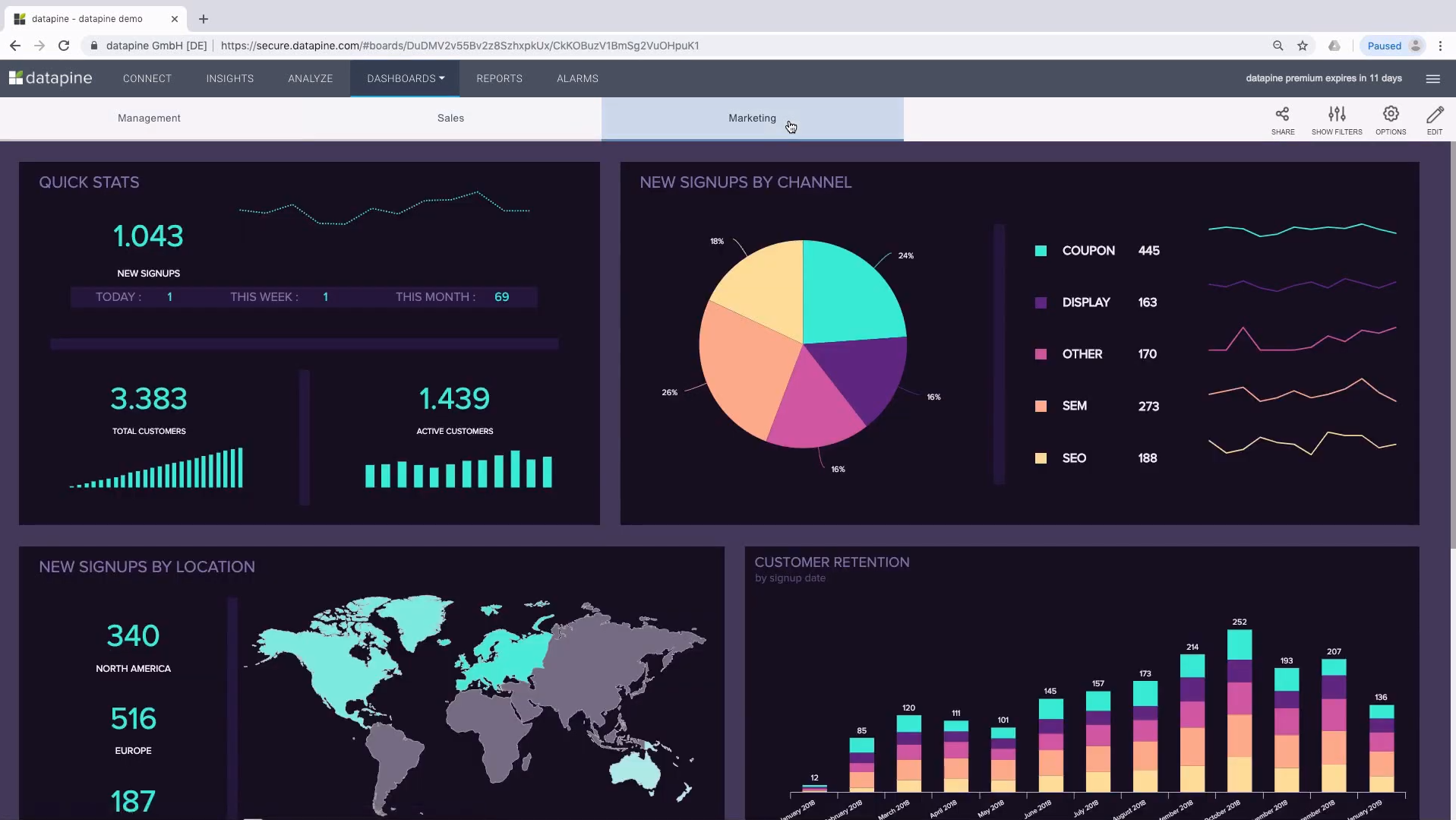
Discover Business Intelligence Software for Clarity That Scales
In today’s data-driven world, businesses are drowning in information. The challenge isn’t just collecting data; it’s understanding it. This is where Business Intelligence (BI) software steps in. It transforms raw data into actionable insights. These insights empower organizations to make informed decisions, optimize operations, and achieve sustainable growth. This article explores the power of Business Intelligence software, its benefits, and how to choose the right solution for your needs. The focus is on how to discover Business Intelligence software for clarity that scales.
Understanding Business Intelligence
Business Intelligence encompasses the strategies and technologies used by businesses to analyze business information. This analysis provides historical, current, and predictive views of business operations. The goal is to improve decision-making. BI tools gather, analyze, and present data. They often use dashboards, reports, and data visualization techniques. These tools help users identify trends. They can also spot potential problems, and gain a deeper understanding of their business performance. This ultimately translates to more effective strategies. The effectiveness of these strategies can be seen in the growth of companies. The right BI software is vital for success.
Key Benefits of Business Intelligence Software
Implementing Business Intelligence software offers several key advantages. These benefits contribute to a more agile and competitive organization.
- Improved Decision-Making: BI tools provide access to real-time data. This data helps users make better-informed decisions. This leads to more effective strategies.
- Enhanced Efficiency: Automating data analysis and reporting reduces manual effort. This frees up employees to focus on more strategic tasks. Efficiency is key for growth.
- Increased Revenue: By identifying market trends and customer preferences, businesses can optimize their sales and marketing efforts. This results in increased revenue.
- Cost Reduction: BI can help businesses identify and eliminate inefficiencies. This reduces operational costs.
- Competitive Advantage: Data-driven insights enable businesses to stay ahead of the competition. They can anticipate market changes and adapt quickly.
Core Features to Look for in BI Software
When selecting Business Intelligence software, consider the following key features. These are essential for maximizing its effectiveness. The features can ensure you discover Business Intelligence software for clarity that scales.
- Data Integration: The ability to connect to various data sources is crucial. This includes databases, cloud services, and spreadsheets.
- Data Visualization: User-friendly dashboards and reports are essential. These tools make complex data easy to understand. They also improve decision-making.
- Data Analysis: Robust analytical capabilities are necessary. These capabilities include data mining, statistical analysis, and predictive modeling.
- Reporting and Dashboards: Customizable reporting and dashboard features are vital. These features allow users to monitor key performance indicators (KPIs).
- Scalability: The software must be able to handle growing data volumes. This is essential for future growth.
- User-Friendliness: The interface should be intuitive and easy to navigate. This ensures wider adoption across the organization.
- Mobile Accessibility: Accessing data on the go is increasingly important. Mobile access allows for real-time decision-making.
Choosing the Right BI Software
Selecting the right Business Intelligence software requires careful consideration. Evaluate your business needs and priorities. Consider factors such as budget, technical expertise, and data volume. Here’s a step-by-step guide to help you make an informed decision:
- Define Your Requirements: Identify your specific needs and goals. Determine the key metrics and KPIs you want to track.
- Assess Data Sources: Identify all the data sources you need to integrate. Ensure the software supports these sources.
- Evaluate Software Options: Research different BI software vendors. Compare features, pricing, and user reviews.
- Consider Deployment Options: Decide whether you need on-premise, cloud-based, or hybrid solutions. Each option has its own advantages.
- Conduct a Pilot Project: Test the software with a small dataset. This helps you assess its performance and usability.
- Provide Training and Support: Ensure that your team receives adequate training. Adequate support is essential for successful implementation.
Top Business Intelligence Software Solutions
The market offers a wide range of Business Intelligence software solutions. These solutions cater to different business needs and budgets. Here are some of the leading options:
- Microsoft Power BI: A powerful and user-friendly BI tool. It integrates seamlessly with other Microsoft products.
- Tableau: Known for its interactive data visualization capabilities. It is a popular choice for many businesses.
- Qlik Sense: Offers a unique associative data model. This is designed to uncover hidden insights.
- Looker (Google Cloud): A cloud-based BI platform. It provides robust data analysis and reporting features.
- Sisense: Known for its ease of use and ability to handle large datasets. It is a great option.
The Future of Business Intelligence
The field of Business Intelligence is constantly evolving. New technologies and trends are shaping its future. These trends include:
- Artificial Intelligence (AI) and Machine Learning (ML): AI and ML are being integrated into BI tools. These help automate analysis and provide predictive insights.
- Self-Service BI: Empowering business users to analyze data without IT assistance. It makes BI more accessible.
- Cloud-Based BI: The shift towards cloud-based solutions continues. This offers scalability and cost-effectiveness.
- Data Governance and Security: Ensuring data privacy and security is becoming increasingly important. This protects sensitive information.
Implementing BI for Scalability and Clarity
To successfully implement Business Intelligence software for scalability and clarity, consider these strategies:
- Start Small: Begin with a pilot project. This allows you to test the software.
- Focus on Key Metrics: Prioritize the KPIs that matter most to your business. This is crucial.
- Ensure Data Quality: Maintain clean and accurate data. This is essential for reliable insights.
- Provide Training: Train your team on how to use the software effectively. This ensures adoption.
- Foster a Data-Driven Culture: Encourage data-informed decision-making across the organization. It is key to success.
Conclusion: The Path to Data-Driven Success
Business Intelligence software is no longer a luxury. It is a necessity for businesses. It is essential for achieving clarity and scalability in today’s competitive landscape. By selecting the right BI solution and implementing it effectively, organizations can unlock the power of their data. They can gain a competitive advantage. They can also drive sustainable growth. Embrace the power of data. Discover Business Intelligence software for clarity that scales. This will set your business on the path to data-driven success. The right BI software is a game-changer.
[See also: Related Article Titles]

